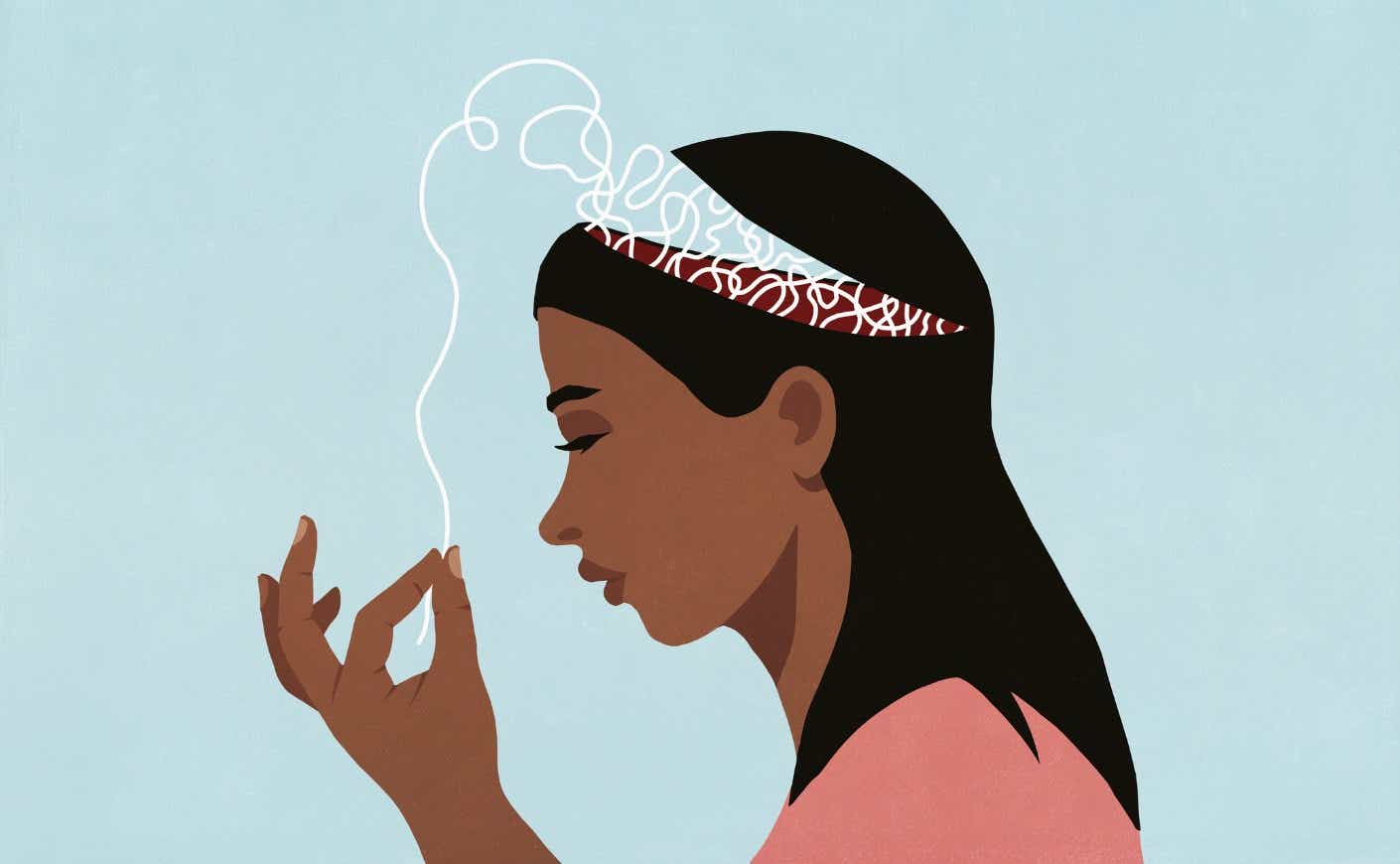As if getting sick from Covid-19 isn’t already bad enough, new research suggests that the disease can now increase your risk of getting certain brain disorders later on.
The findings, which were published in the journal Lancet Psychiatry, found coronavirus patients have a higher risk of developing dementia, epilepsy, cognitive deficit (or brain fog), and other mental health disorders — and their risk can stay high as much as two years after their diagnosis.
"The findings are alarming and are critically important in our current context of unmitigated Covid spread," Rachel Sumner, a senior research fellow at Cardiff Metropolitan University, who wasn’t involved in the study, told CNN.
But this also isn’t the first study of its kind: Research from the same group found last year that a third of patients who had Covid-19 experienced mood disorders, strokes, or dementia about six months after their initial infection. And most recently, a year-long study published in Nature Medicine found that brain and other neurological disorders were found in 7 percent — or more than 6 million — Americans who recovered from Covid-19.
Still, scientists involved in the study acknowledge that there are still a lot of questions when it comes to the impact of Covid-19 on brain health. Namely, how long these risks remain and whether they affect children and adults in the same way. Here’s a breakdown of what we gleaned from the study.
About the study
The study, “Neurological and psychiatric risk trajectories after SARS-CoV-2 infection,” examined de-identified data from more than a million Covid-19 patients from the U.S. and seven other countries, including India and Spain.
The research team specifically zeroed in on those who were diagnosed with Covid-19 between Jan. 20, 2020, and April 13, 2022, and then compared them to those diagnosed with other respiratory tract infections. But the research team emphasized that this doesn’t mean that the study’s cohort had long covid, a term used to describe a wide range of symptoms, such as fatigue and breathlessness, that can last months after infection.
“It would be overstepping and unscientific to make the immediate assumption that everybody in the [study] cohort had long covid,” David Putrino, director of rehabilitation innovation at Mount Sinai Health System in New York, told The Washington Post.
The key findings
The study revealed that age had a lot to do with whether Covid-19 patients developed brain disorders. For instance, 4.5 percent of adults 65 and over developed dementia two years after getting an infection, compared with 3.3 percent of the control group. Meanwhile, people between the ages of 18 and 64 were more likely to develop brain fog (6.4 percent of this demographic developed the condition, compared to 5.5 percent of those who had other respiratory illnesses).
But there were a few silver linings: the risk of some conditions, including anxiety and mood disorders, disappeared within two to three months. Similarly, children weren't at more risk of mood disorders like depression six months after infection, though they remained at greater risk of brain fog, insomnia, stroke, and epilepsy.
What it means for future cases
Though it might seem counterintuitive, Covid-19 variants that appear milder have the same long-term consequences as more serious strains. What’s worse, doctors worry that people who develop brain disorders as a result of the illness may not get the help they need due to long-standing delays in an already strained health care system.
"The idea that maybe there's this terrible thing that's happening that we won't appreciate until months or years later isn't being addressed adequately," Dr. Aaron Friedberg, a clinical assistant professor at Ohio State University told CNN.
With the CDC reporting that almost 60 percent of Americans have had covid, the findings are worrisome — but one of the study's coauthors, Paul Harrison, told CNN they shouldn't cause panic. "We're not talking about things that are 10 or 100 times more common. I think the worst odds ratio is sort of two or three."









